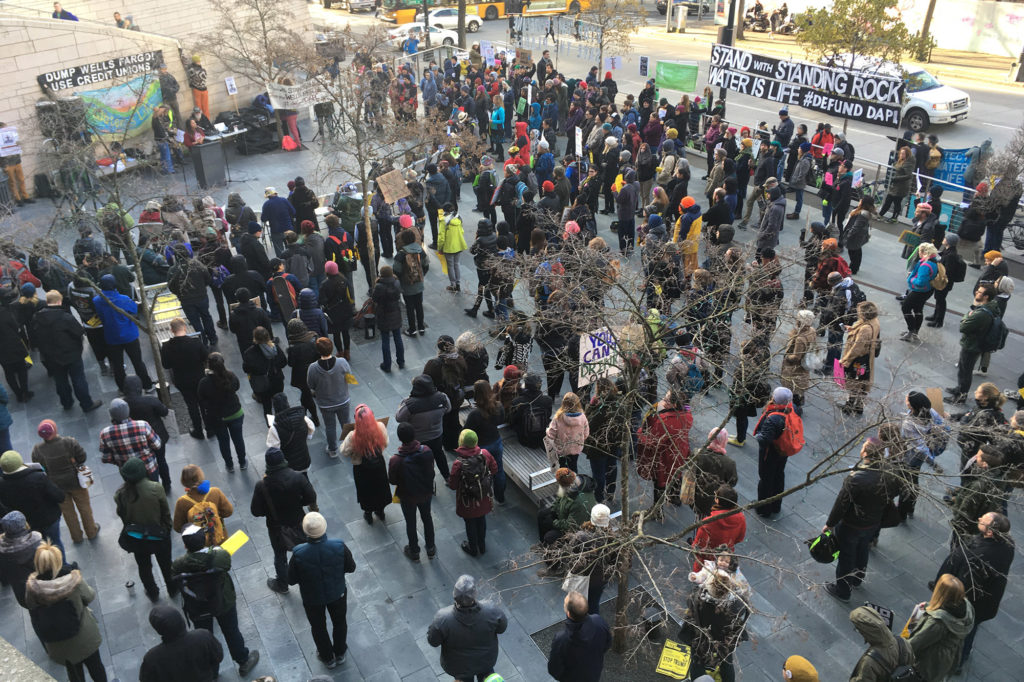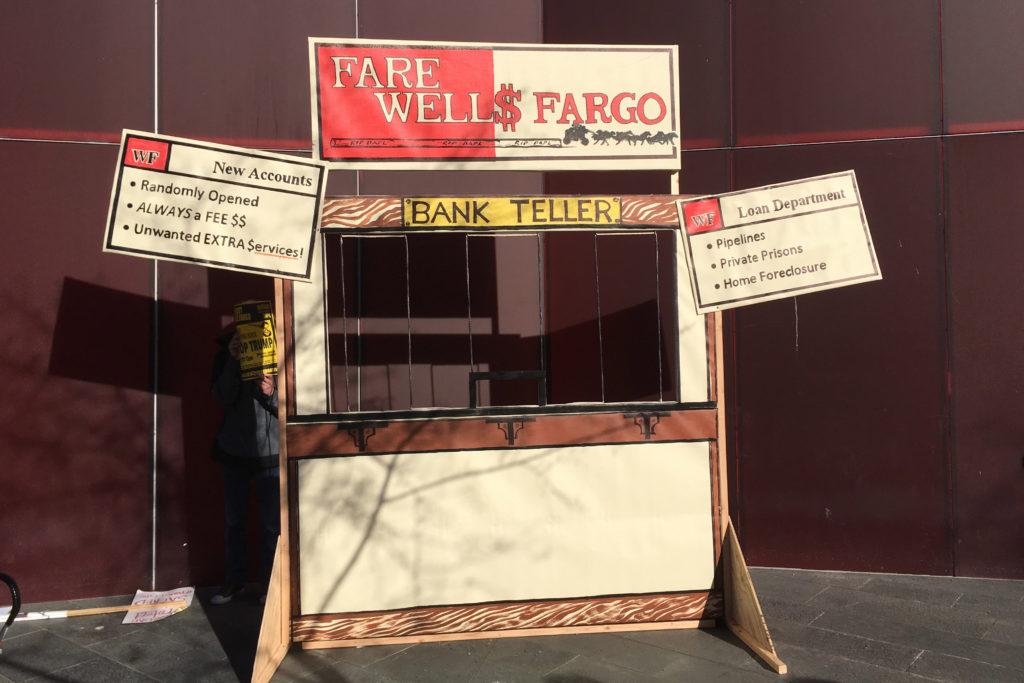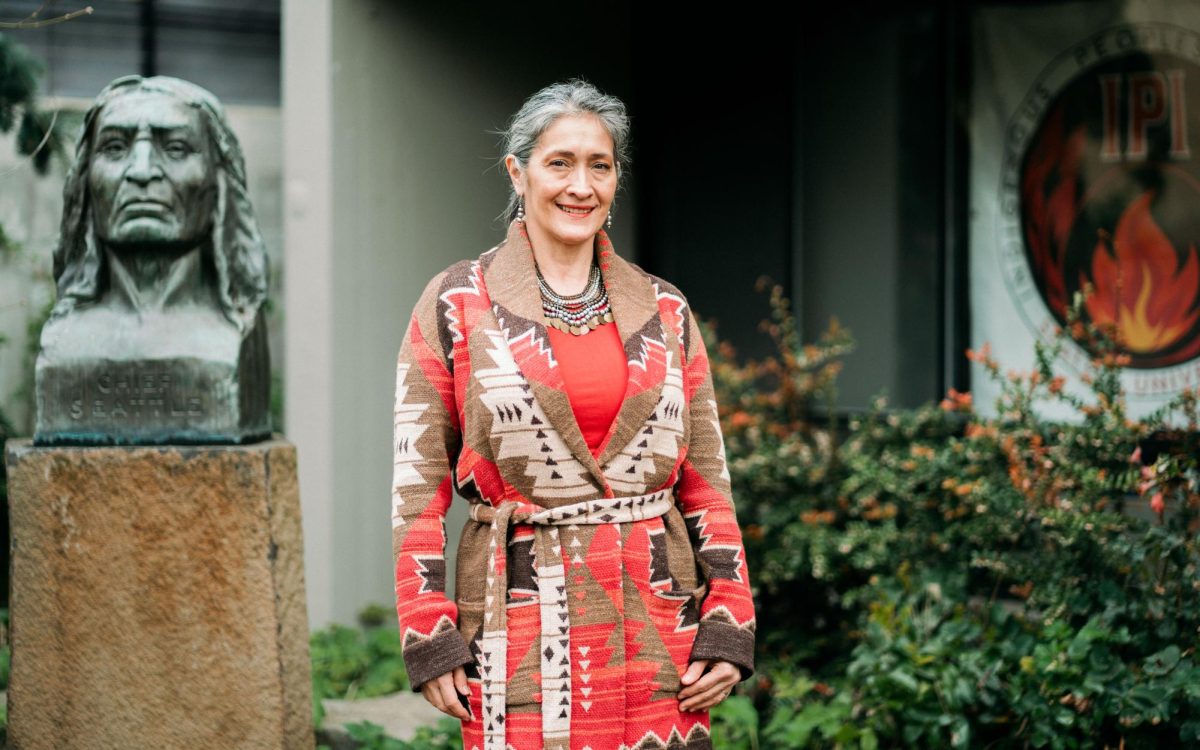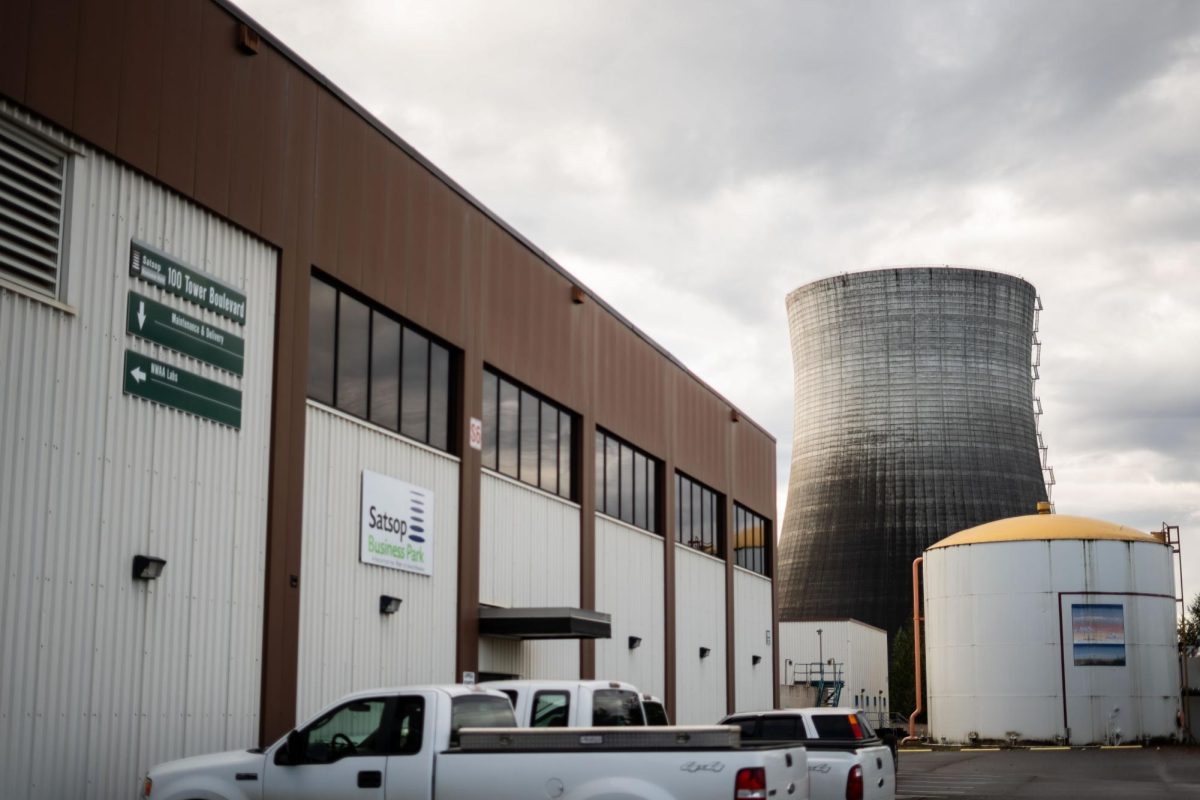Downtown Seattle awoke to chanting on the morning of February 1. “No coal, no oil, we want our money back!” and other mantras of opposition toward the Dakota Access Pipeline echoed through busy streets as activists from Seattle and cities beyond rose early, endured the cold and gathered in front of city hall to await a decision that could be the beginning of a nationwide movement.
Eight of City Council’s nine committee of finance members assembled to vote on the future of Seattle’s association with Wells Fargo, a prominent lender to the Direct Access Pipeline, an oil pipeline in North Dakota currently under heavy protest. Wells Fargo is one of several major banks funding the pipeline with almost $500 million invested in the project.
Since Wells Fargo has been the bank of Seattle since 1999, the decision to break ties would undo almost 20 years of partnership and result in the divestment of $3 billion, measures that city council saw as necessary for environmental and ethical reasons.
This initiative, spearheaded by city councilmember Kshama Sawant, brought together almost the entire financial committee to make a decision. Though city hall has only recently taken this stance against the Dakota Access Pipeline, just outside its doors were people from across the country that have opposed it from the very beginning. People that have seen the events in North Dakota firsthand and have supported the protesters at Standing Rock were leading the crowd.
“We are winning, not because some politicians passed an ordinance, but because we are here,” said Nikkita Oliver, local artist and member of the Black Lives Matter movement. “We cannot drink oil and we cannot eat money. Doing the right thing is not something to be celebrated, but something to be expected.”
Though the gathering consisted of people from many different backgrounds, the event’s most influential voices came from people of color. There were strong showings from Black Lives Matter and Native American activist groups like Indians for Justice. They stressed that the causes behind DAPL run parallel to many of the other challenges in our countries, like the current water crisis in Flint, Mich., for example.
“We have to divest from the things that are harming us and invest into the things that are making us stronger,” said Rashad Barber, another speaker outside City Hall.
The result of the financial council’s decision will not take effect until December 2018, when Seattle’s contract with Wells Fargo is due for renewal. Though the events at City Hall may not have resulted in any immediate effects, they are nonetheless a significant development for what they could mean for the future.

Protesters gathered at City Hall to protest Wells Fargo’s investment in the DAPI.
Many of the speakers at the event described Seattle as a “domino city,” arguing that its unique position as both an important West Coast city and also first city of its size to divest might set an example for others to follow. They imagined that with Seattle as a precedent, other smaller cities might follow suit, which in turn might encourage the larger urban centers.
Though the $3 billion Seattle is divesting from Wells Fargo is not a very large sum relative to the amount of money they manage nationwide, it has the potential be much more significant if others follow suit. With a dwindling amount of cities to do business with, the hope is that Wells Fargo will have to cease their funding of the DAPL.
“It takes a village to get these things done,” said Millie Kelly, a lawyer specializing in Native American law and one of the main organizers for the gathering outside of City Hall. “Our village is getting bigger and bigger every day.”
The events that occurred at City Hall on Feb. 1 could be described as having happened in two different worlds. In one sphere there was the official and stately approach to change with elected officials navigating systems and legislation. In the other sphere were the protestors, the first responders and those that have risked their safety in raising awareness. Though these two groups were different in everything from sitting versus standing, indoor voices versus loud chanting, both were after the same goal and both achieved a victory last Wednesday.
Carlos may be reached at
[email protected]












